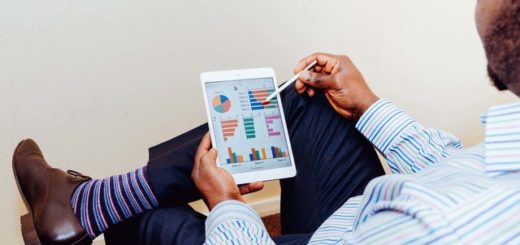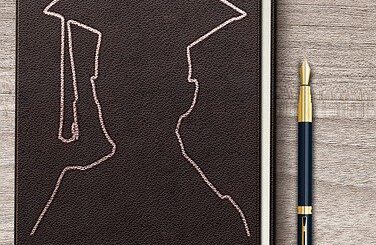Consultancy Services Required for Development of COVAW Anti-FGC Training Manual
The Coalition on Violence Against Women (COVAW) is a national Kenyan not-for-profit women’s rights organization. We are committed to advancing women’s rights; and work towards achieving a society free from all forms of Violence Against Women and Girls (VAWG). COVAW was founded in 1995 as a response to the silence of the Kenyan society to address VAWG. COVAW implements projects under five (5) strategic focus areas including: Access to Comprehensive Sexual and Gender Based Violence (SGBV) and Sexual and Reproductive Health Rights (SRHR) Services; Women’s Economic Empowerment; Women’s Leadership Development; Access to Justice; and Institutional Development.
COVAW is guided by its core values of respect, integrity, solidarity and commitment in improving the lives of its primary beneficiaries – women and girls. View strategic plan from here
Project Description
The ‘Accelerate an end to Female Genital Cutting (FGC) amongst the Maasai and Samburu communities in Kenya’ project is focused on reducing FGC prevalence across all 6 sub-counties in Narok including Loita Hills. Through a combination of community dialogue forums engaging the whole community in discussion about how FGC can end, complemented by radio shows to raise awareness of FGC. The implementing partners i.e. COVAW, Orchid Project and SAFE Maa are committed to reducing FGC prevalence rates within the Maasai and Samburu communities by 10-19% points by April 2023. This program is funded by Human Dignity Foundation.
Project Objectives
The project aims at contributing to a measurable reduction in FGC prevalence by 10-19% over three years within Kenyan Maasai and Samburu communities. The project theory of change outlines the following short-term and long-term objectives:
Long term outcomes:
Outcome 1: FGC is no longer perceived as a key part of culture
Outcome 2: Enabling environment supporting community change
Outcome 3: Increased status/opportunity for girls and women in communities
Short term outcomes:
- Community members have increased knowledge of FGC and human rights
- Key influencers are taking action against FGC
- Viable alternative options to FGC exist in the community
- There is increased visibility in regards to change towards FGC in the community
- There is increased collaboration between key stakeholders towards ending FGC
- Women and girls have greater agency in decision making
Purpose of the Consultancy
The primary purpose of the consultancy is to:
- Simplify the content in the draft COVAW Anti-FGC Training Manual to a reader friendly version to ensure it is easy to understand and can be interpreted in the community level.
- Package the training manual content in an attractive, creative manner while making use of imagery and illustrations to make the training manual more accessible and less text heavy.
- Ensure feedback provided by the consortium partners is incorporated in the final version of the training manual.
Broadly, the anti-FGM training manual should cover the SCOPE below;
Section 1.0 Introduction
An overview of COVAW’s work on accelerating the end of FGM/C in Maasai land. An explanation of who the manual is intended for. A description of the mode of delivery. A description of language used in FGC work and the way FGC is communicated i.e. the importance of non-judgmental approaches.
Section 2.0: Anti-FGC Training Modules
A description of the structure of each module i.e. the module objectives, participatory activities and the training content. The manual will cover six modules i.e. an introduction to FGC, the cost of FGC, Human Rights and how FGC is a violation of human rights, social norms, emerging trends and alternative rite of passage.
The following should be covered in each module:
1.Introduction to FGC
A definition of FGC , types of FGC, prevalence of FGC and myths and misconceptions sustaining the practice.
- Cost of FGC
A definition of a cost, FGC real costs and facts about the cost of FGC.
- Human Rights
Characteristics of Human Rights and Anti-FGC Legal Framework.
- Social Norms
Definition of a social norm, positive and negative social norms in the MAA community. The change process and how communities can be supported to abandon retrogressive social norms like FGC.
- Emerging trends in FGC practice
Emerging trends in FGC practice like medicalization of FGC which is frustrating efforts to end the practice.
- Introduction to Alternative Rite of Passage(ARP)
Definition of Alternative Rite of Passage, guiding principles when developing ARP and steps in development of an ARP.
Expected Deliverables
The selected consultant should deliver the following:
1st Draft Document
The draft document will contain information as indicated in the scope above. Timely feedback on the 1st draft will be provided by the program team.
2nd Draft Documents
The revised documents will synthesize all information, conclusions and recommendations taking into account all comments and additions from COVAW following the submission of the 1st Draft Document. In case the 2nd draft document is not satisfactory to either parties, communication and the work should continue till an approved 2nd draft.
Preparation Documents
All documents used in the preparation of this assignment such as, interview guides, progress reports, data collection tools, draft project documents, templates, raw data collected, preliminary and intermediate designs, layouts, specification documents etc. are expected to be submitted to COVAW together with the 2nd draft document.
Validation Meeting
COVAW will organize a feedback meeting. The consultant will make a presentation to the program team on the contents of the handbook. The meeting will be an opportunity to clarify outstanding aspects of the handbook before their finalization.
Produce Final Document
The consultant will be expected to produce the training manual in English which will include the main issues discussed and all the components provided by COVAW during the validation meeting. The training manual should be a maximum of 25 pages. The manual must be formatted (edited, content layout and design) ready for publication (in a printable final version). Must submit one printed copy.
Management and Timeframe
Duration of the work
The duration of this consultancy is expected to run for one month.
Management of the work
The consultant will be supervised and guided directly by COVAW and the consultant will be required to meet the expected deliverables listed during the period of the consultancy. The consultant will work closely with the COVAW Team and will from time to time submit and share the progress of activities as agreed.
NB: Full payment will be made upon submission and approval of the anti-FGC training manual
COVAW will be responsible for the following:
- Holding an entry meeting with the consultant
- Sharing the relevant COVAW background organizational information and providing contacts for the program team in charge
- Review, discuss and improve the drafts produced from review
- Providing the consultant with specific information and feedback within the stipulated time
- Validate the final handbook
Skills and Experience
- Degree in social sciences with over five years of experience in anti-FGC advocacy work.
- Extensive experience in designing similar projects that work with the marginalized communities including youth, women and persons with disabilities.
- Fluent in English.
- Ability to plan, prioritize and provide quality results on time
Application Process
All applications with a cover letter specifying professional qualifications, anticipated cost and timeline for the consultancy and at least 2 samples of previous work related to this assignment together with references should be submitted on or before 25th August, 2021 by 5.00pm via email to recruit@covaw.or.ke with the subject: DEVELOPMENT OF COVAW ANTI-FGM TRAINING MANUAL








